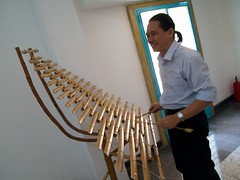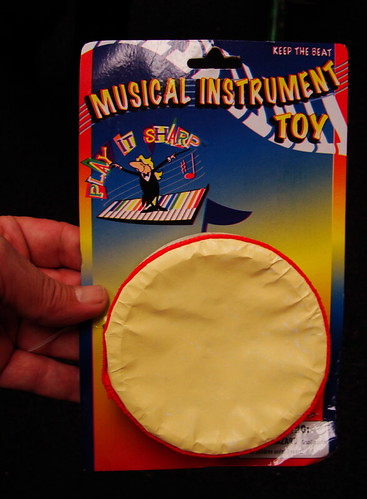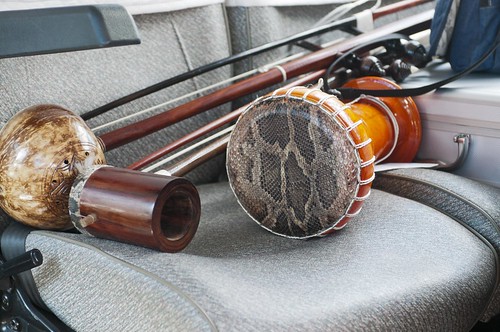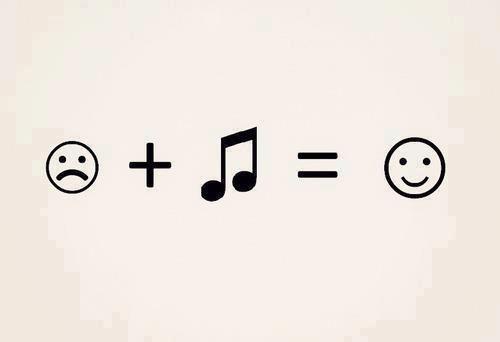Which Musical Instrument is Recommended for Beginners?
*Will the instrument I choose be affordable?
*Which instruments are easy to learn and which are difficult to learn?
*Will it be a quiet instrument or a noisy one?
*If I don’t choose a popular instrument will I be able to find a teacher easily?
*Is the musical instrument of my choice popular or is it an instrument that not many people play?
*How much will a lesson cost?
*I want to choose a musical instrument that I can play in a band. What instruments should I choose?
*I want to play a certain type of music. Which musical instruments are suitable for different styles?
In the following article I will be answering all of the above.
Here is a list of musical instruments to choose from listed in popularity, with the number 1 being the most popular:
1) Guitar
2) Piano
3) Keyboard
4) Drums
5) Violin
6) Cello
7) Flute
8) Saxophone
9) Clarinet
10) Trumpet/Cornet
11) Trombone
12) French Horn
13) Banjo
14) Recorder
15) Viola
16) Tuba
17) Oboe
You can see a list of all musical instruments here:
Musical Instrument Shop. Lots of information and choice. Buy Musical Instruments here
Will the instrument I choose be affordable?
If you want to buy a musical instrument but don’t wont to spend too much money I would choose either a guitar, keyboard, violin, clarinet or trumpet. These instruments are the
cheapest to buy when starting out.
Which musical instruments are easy to learn and which are difficult to learn?
The easiest musical instruments to learn from the list above are: Guitars, Drums and Recorders.
Guitar
The guitar should be easy to pick a few chords and you can almost start strumming and playing a simple tune from your first lesson. It is best advised to learn the classical guitar first as it has nylon strings and will be easier on the fingers than a steel strung electric or acoustic guitar.
Drums
Drums are fairly easy to learn as well. The important thing is to feel the rhythm, once you have this, everything else should be easy to pick up.
Recorder
The recorder is probably the easiest of all musical instruments to learn. Most children at school take up this instrument before progressing on to the clarinet, flute or saxophone which is much more difficult to learn.
The most difficult musical instruments to learn from the list above are: Oboe, French horn, Trumpet and Piano.
The Oboe
The Oboe is probably the most difficult musical instrument to learn. It is very difficult to even produce a sound at first, let alone a musical note. This instrument can take many years to master
The French Horn
The French horn also takes quite a while to get the hang of. The sound is produced not only by blowing, but by creating an embouchure and buzzing the lips to control the air stream, which in turn creates the correct pitch to produce the note. Then the correct valves that correspond to the right pitch have to be learnt. The hand is also used to help the quality of sound by placing in the bell. Wow! Perhaps this is not a great instrument for beginners!
The Trumpet
The trumpet is considered difficult to learn initially because of the techniques needed (similar to the French horn but without using the hand in the bell). The difficult thing about the trumpet is trying to make a nice sound which can take a few years to perfect.
The Piano
Although it is easy to make a sound on a piano, just by pressing any note you sound like a professional, the piano is very difficult when you need to play more than one note at a time. All the above instruments require you to play just one note at a time but with the piano sometimes you need to use every finger and thumb at the same time!
You also need to learn two different clefs, and to learn to read this at the same time is not easy at first.
Will it be a quiet musical instrument or a noisy one?
Do you have neighbours that don’t appreciate music? And they live right next to you with thin walls.
Do you want to play late at night or early in the morning
Are you embarrassed that you are not making a good sound yet, or you don’t want people to hear what you are playing.
If any of the above is true, you need a quite musical instrument or at least one that you can play with headphones or adjust the sound electronically.
If you want to learn a quiet musical instrument, then choose one of the following: Guitar, Piano, Keyboard, Recorder, Clarinet or Flute.
The Classical guitar is very quite and delicate but not the electric or acoustic guitar which are very noisy when amplified!
You can plug headphones in to a digital piano or keyboard or you can turn the sound down. This is the ideal instrument to buy if you don’t want to make any noise. The acoustic piano (also known as the upright or grand piano) is very noisy and should be avoided if you need some peace.
The Recorder is fairly quiet, apart from the high notes, so this instrument would be ok.
The Clarinet is a fairly quiet instrument. It does really depend on how it is played.
The Flute is also quiet but the sound can be a bit piercing on the higher notes.
If I don’t choose a popular musical instrument, will I be able to find a teacher easily?
You can find a musical instrument teacher almost anywhere; there are literally tens of thousands in the UK.
You will almost certainly have no problem finding a teacher if you play the more popular musical instruments: guitar, piano, keyboard, drums or violin.
Is the musical instrument of my choice popular or is it an instrument that not many people play?
Please see the above list of musical instruments. They are listed in order of popularity, number 1 being the most popular instrument.
There are a few guides to find out if a musical instrument is popular. Just look at a symphony orchestra or a wind band and count the number of instruments there are and how many there are of each.
You will find that there are lots of violins and percussion (clarinets and flutes in the wind band case) which means that there is no shortage of people learning these instruments. You will also find that there is only one tuba, one oboe, a few french horns, a few flutes, a few clarinets etc. Of course this is only a guide, as some of the other popular musical instruments such as the guitar, piano and keyboard are not normally found in a symphony orchestra.
How much will a lesson cost?
Individual musical instrument lessons can cost between £8 and £20 for half an hour. Group instrument lessons £5 to £12. Popular musical instruments are normally cheap than not so popular instruments, normally because there is no shortage of teachers and competition tends to bring the prices down.
It is normally better to learn instruments in a group rather than learn individually. Group learning is much more fun as every one is the same level as you and you can share experiences together. Individual instrument lessons can be too serious for a beginner and can actually put you off learning music because of this. However, individual lessons are a must when you get to a certain level of proficiency.
I want to choose a musical instrument that I can play in a band. Which instrument should I choose?
The best musical instruments to learn if you want to play in band are: Guitar, Saxophone, Clarinet, Violin or Cornet.
This list might be considered a strange one, but let me explain the reasoning behind this.
*The guitar is second-to-none as a solo instrument for a band. If you are the lead guitarist (electric guitar), you get all the limelight. You can play great riffs from all the famous songs.
* The Saxophone is a great solo instrument and if you play in a jazz band or big band you get lots of solos to play.
*The clarinet is the king of the wind band; it is the orchestra’s equivalent of the lead violin. In a wind band you get to play lots of solos and intricate melodies.
*The Violin is a fantastic solo instrument and orchestral instrument. Many of the great composers have written beautiful solos and melodies for this instrument.
*The Cornet is the king of the brass band. This instrument has one of the most delightful sounds of all. The cornet is given the lead role in a brass band and is featured in all the best arrangements. The lead cornet player gets to play many solos.
I want to play a certain type of music. Which musical instruments are suitable for different styles?
Here is a list of different music styles:
Rock, Classical, Pop, heavy Metal, R&B, Jazz, Blues, Folk, Caribbean, African, Latin, Dance, Country, Rap, Hip Hop, Christian, Opera.
This list below would be endless if I went in to it in great detail, so here is a short list.
1) Guitar. The electric or bass guitar is suitable for pop, rock, R&B, heavy metal, R&B, Jazz and blues, the classical guitar for classical music, the acoustic guitar for pop and folk.
2) Piano. The acoustic piano is suitable for classical, jazz, blues and dance.
3) Digital Piano/Keyboard is suitable for pop music, dance, jazz and blues.
4) Drums are suitable for pop, rock, classical, jazz, African – well, almost everything!
5) Violin is suitable for classical, folk, country and dance.
6) Cello is suitable for classical.
7) Flute is suitable for classical.
8) Saxophone is suitable for jazz, blues, pop.
9) Clarinet is suitable for classical, jazz and blues.
10) Trumpet/Cornet is suitable for classical, jazz, blues and dance.
11) Trombone is suitable for classical, jazz and blues.
12) French horn is suitable for classical.
13) Banjo is suitable for country and folk.
14) Recorder is suitable for classical.
15) Viola is suitable for classical.
16) Tuba is suitable for classical.
17) Oboe is suitable for classical.
I hope that you now feel more informed and can make a decision on which musical instrument is best for your needs.
If you need more information about musical instruments I can recommend visiting http://www.soundsmusical.comthe top musical instrument shop in the UK – Soundsmusical.com
Happy learning!
Henry Howard is a respected member of the music community. He is known as The Master of Music and has written many articles about musical instruments. You can reprint or reuse this article as many times as you wish, but keep my links intact.
Article Source:
http://EzineArticles.com/?expert=Henry_Howard
Related Musical Instruments Articles






